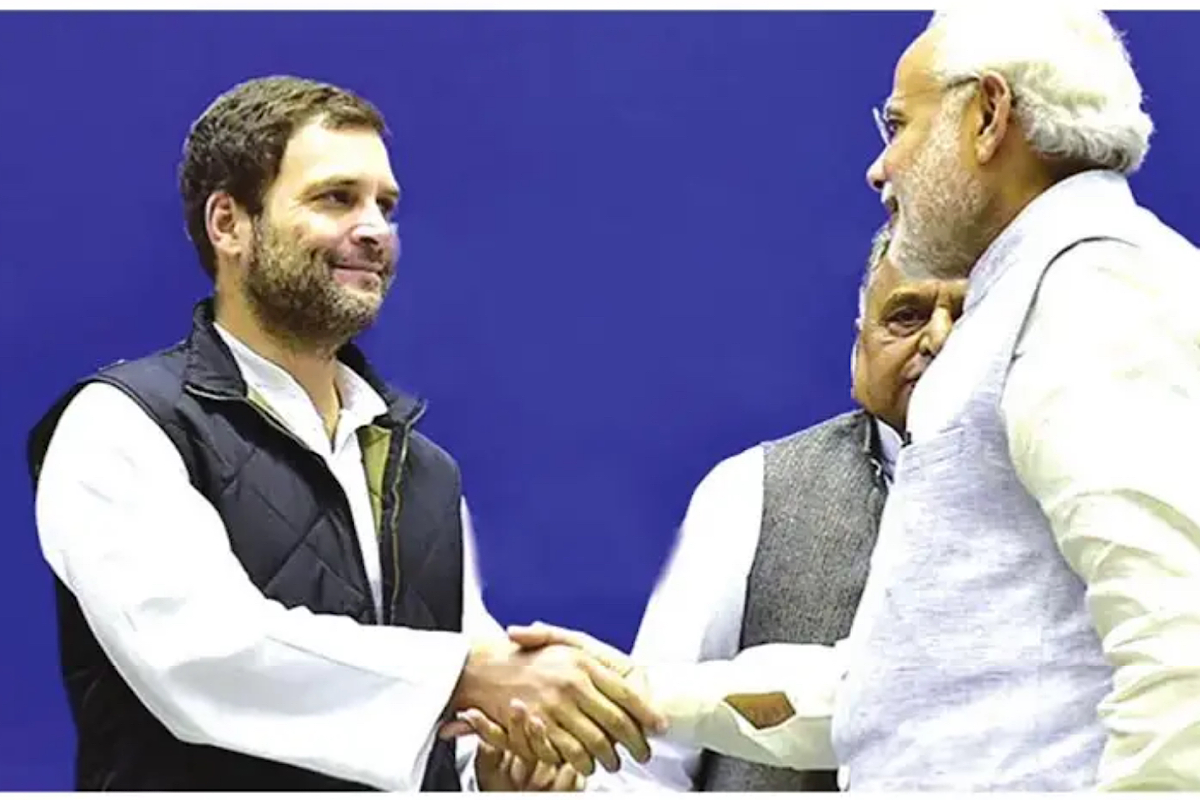Considering the overall record of the last 75 years or so, India’s democracy can be considered to be a significant success at several levels. Nevertheless, few who are seriously involved with the health of this largest democracy in the world will deny that there is urgent need for reforms at several levels. First and foremost, there is a compelling need for improving the relations of the ruling party/alliance and the opposition parties.
Democracy not just allows but in some contexts even demands that there should be a certain level of tension in the relationship between the ruling party and the opposition, but this tension has to be contained within certain limits so as not to threaten the health of democracy. We only have to look at our neighbouring countries like Bangladesh, Pakistan and Sri Lanka to realize how disruptive continuing tensions verging on breakdown can be for any country. We have not reached such a sad stage yet, but we appear to be steadily moving in this direction as the relationship between the ruling party and leading opposition parties has been steadily deteriorating in India too.
Advertisement
Opposition leaders sometimes make needlessly hostile statements which could be avoided, particularly while addressing foreign audiences. Ruling party leaders can avoid being arrogant in their many interactions with opposition leaders. To prevent further deterioration and improve relations both sides need to take steps, but the more powerful side needs to act first and make a bigger contribution with reassuring statements and gestures, followed by more significant steps.
Perhaps some senior or neutral persons, such as retired judges, bureaucrats, academics or political leaders, can play a mediatory role. One important aspect of reform is that no one should be victimized for playing an opposition role. No one will argue that anyone should escape from cases relating to corruption and irregularities just by being an opposition leader, but such cases should be well-established before any serious action like arrest is taken, to avoid charges or suspicion of deliberate victimization or targeting.
Beyond opposition political parties, many activists, NGOs and journalists have been feeling the pressure. As is required by any healthy democracy, social activism and media should be able to function in free conditions (although of course with due responsibility) in which they do not have to think several times before voicing a critical opinion. Generally speaking, an atmosphere should not exist in which political or social activists, or media persons, whose role is very important for a vibrant democracy, feel that their interests are best served by siding with the government and they can be harmed if they are too free with their critical views.
If any government succeeds in creating such conditions, then this should be seen as a problem rather than an achievement and suitable remedial steps should be taken. It is an established principle of a justice-based system that imprisonment or other serious punishment for any innocent persons should be avoided. The high percentage of undertrial prisoners in India and the routine languishing of thousands of people without their guilt being proved and their inability to get bail have been persistent problems.
They need remedial actions. This problem gets worse if some persons are being victimized for their activism, or if more resourceful offenders are able to implicate innocent poor people while protecting themselves. A level playing field is needed for different political parties and the system should not be such as to bring in huge money for the ruling parties while obstructing funds flow to opposition parties. Also the funding systems should be transparent in which details of donations to political parties are properly recorded.
In addition, if opposition parties have complaints regarding the functioning of the election system and they are able to present these with credible evidence, then these should be examined carefully and remedial actions should be taken to correct any malfunction or systemic flaws. India is constitutionally a secular country and must firmly remain so.
All diversions from secularism should be checked. What is even more important is to maintain inter-faith harmony and protect the essential rights of minorities, while ensuring their safety. Promotion of spiritual and ethical values is very good and these values are rooted in all religions as well as in the teachings of great persons who are respected by all religions.
A campaign to promote such spiritual values is needed while campaigns that focus on exhibiting religious fervor of any one religion (or even of many religions) should be avoided. What should not be forgotten is that when an overly religious fervor is sought to be created, there are lumpen elements active in many places who quickly take advantage of this to harass and victimize others, and sometimes even those members of their own communities whom they may not like.
India’s democracy is best protected by maintaining reasonably good relations between government and opposition, ensuring fair elections and a level playing field, avoiding all repression and victimization, protecting the secular framework of the constitution, protecting minorities and maintaining inter-faith harmony. While we need all this for the health of our democracy, this will also go a long way to protecting and promoting the stature of India and contributing to the ethical base of its wider and more important role in international affairs.
(The writer is Honorary Convener, Campaign to Save Earth Now. His recent books include When the Two Streams Met, Man over Machine and Earth without Borders.)











